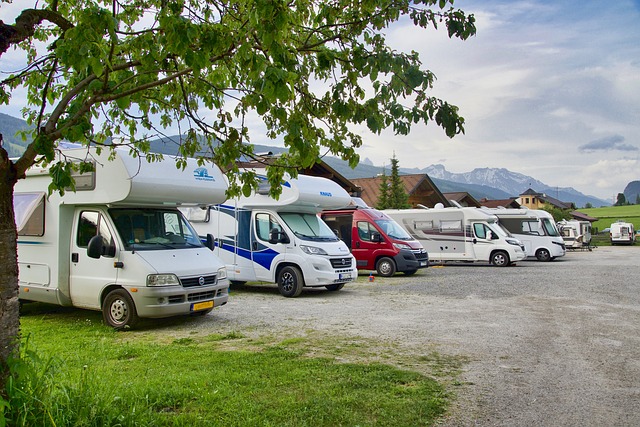RV insurance is an essential safeguard for anyone who owns and operates a recreational vehicle, but the type of coverage you need largely depends on how you use your RV. Whether you live in your RV full-time or use it occasionally for vacations, insurance policies are designed to cater to the unique risks and requirements of each lifestyle. Understanding the key differences between full-time and part-time RV insurance can help you choose the right coverage for your needs.
What Is Full-Time RV Insurance?
Full-time RV insurance is designed for individuals or families who use their RV as their primary residence. It provides coverage similar to a homeowners insurance policy while also including elements of auto insurance. This type of policy addresses the unique risks faced by full-time RV dwellers.
Key Features of Full-Time RV Insurance
Liability Coverage for Living Space:
Full-time RV insurance includes liability coverage for injuries that occur inside or around your RV, just like a homeowners policy. For example, if a visitor slips and falls inside your RV, your insurance will cover medical expenses or legal fees.
Personal Belongings Protection:
Since full-time RVers often carry most of their belongings with them, this coverage ensures that items like clothing, electronics, and appliances are protected against theft or damage.
Emergency Expense Coverage:
If your RV becomes uninhabitable due to a covered event, emergency expense coverage helps pay for temporary lodging, meals, and transportation.
Comprehensive and Collision Coverage:
These coverages protect against damages from accidents, theft, vandalism, and natural disasters.
Higher Coverage Limits:
Full-time RV insurance typically includes higher coverage limits to account for the increased risks associated with living in the RV full-time.
For more details on what RV insurance typically covers, read here.
What Is Part-Time RV Insurance?
Part-time RV insurance is tailored for those who use their RV occasionally, such as for weekend trips, vacations, or seasonal travel. This type of policy provides basic coverage while the RV is in use and may offer reduced protections when the RV is in storage.
Key Features of Part-Time RV Insurance
Seasonal Liability Coverage:
Part-time RV insurance includes liability protection while the RV is on the road or parked at a campsite. However, this coverage may not extend to long-term use.
Storage Protection:
When the RV is not in use, part-time insurance typically includes basic coverage for risks like theft, fire, or vandalism.
Lower Premiums:
Since part-time RV insurance assumes limited usage, the premiums are generally lower compared to full-time RV insurance.
Optional Add-Ons:
Part-time policies often allow you to add specific coverages, such as roadside assistance or trip interruption coverage, for an additional cost.
For insights into how RV insurance costs vary, read here.
Key Differences Between Full-Time and Part-Time RV Insurance
While both types of insurance offer essential protections, there are significant differences in coverage, costs, and intended use. Here’s a closer look:
1. Intended Use:
- Full-time insurance is for those who live in their RV year-round.
- Part-time insurance is for occasional or seasonal use.
2. Coverage Scope:
- Full-time policies include liability for the living space and higher personal belongings limits.
- Part-time policies focus on liability during travel and basic storage protection.
3. Premium Costs:
- Full-time insurance tends to have higher premiums due to the increased risks and comprehensive coverage.
- Part-time insurance is more affordable since the RV is not used year-round.
4. Emergency Coverage:
- Full-time insurance includes emergency expense coverage for lodging and transportation.
- Part-time policies may not offer this feature unless added as an optional benefit.
5. Deductibles and Limits:
- Full-time policies often have higher coverage limits to accommodate extended use.
- Part-time policies typically have lower limits and deductibles.
Who Needs Full-Time RV Insurance?
Full-time RV insurance is ideal for:
- Individuals or families who use their RV as their primary residence.
- Retirees who travel year-round and no longer maintain a traditional home.
- Digital nomads who work remotely while living in an RV.
Who Needs Part-Time RV Insurance?
Part-time RV insurance is suitable for:
- RV owners who use their vehicle for weekend trips or vacations.
- Seasonal travelers who only use their RV during certain months of the year.
- RV enthusiasts who store their vehicles when not in use.
How to Choose Between Full-Time and Part-Time RV Insurance
When deciding which type of RV insurance is right for you, consider the following factors:
Usage Frequency:
Evaluate how often you use your RV. If you’re living in it full-time, a part-time policy won’t provide adequate protection.
Coverage Needs:
Think about what you need to protect. Full-time RV insurance is better for safeguarding your living space and belongings, while part-time insurance focuses on travel-related risks.
Budget:
Compare the costs of both policies. While full-time insurance is more expensive, it provides comprehensive coverage for those who need it.
State Requirements:
Some states have specific insurance requirements for RVs based on their usage. Check your state’s laws to ensure compliance.
Real-Life Example: Full-Time vs. Part-Time RV Insurance
Imagine Alex and Lisa, two RV owners with different lifestyles. Alex is a full-time RVer who travels across the country and lives in his motorhome year-round. He needs full-time RV insurance to protect his living space, personal belongings, and liability.
Lisa, on the other hand, uses her travel trailer for weekend camping trips during the summer. She opts for part-time RV insurance, which provides coverage during her travels and basic protection while the RV is in storage.
Both policies cater to their unique needs, ensuring they are adequately protected without overpaying for unnecessary coverage.
The choice between full-time and part-time RV insurance depends on how you use your RV and the level of protection you need. Full-time RV insurance offers comprehensive coverage for those living in their RV, while part-time insurance provides affordable protection for occasional users. Understanding the differences and evaluating your lifestyle will help you select the right policy for your recreational vehicle.



